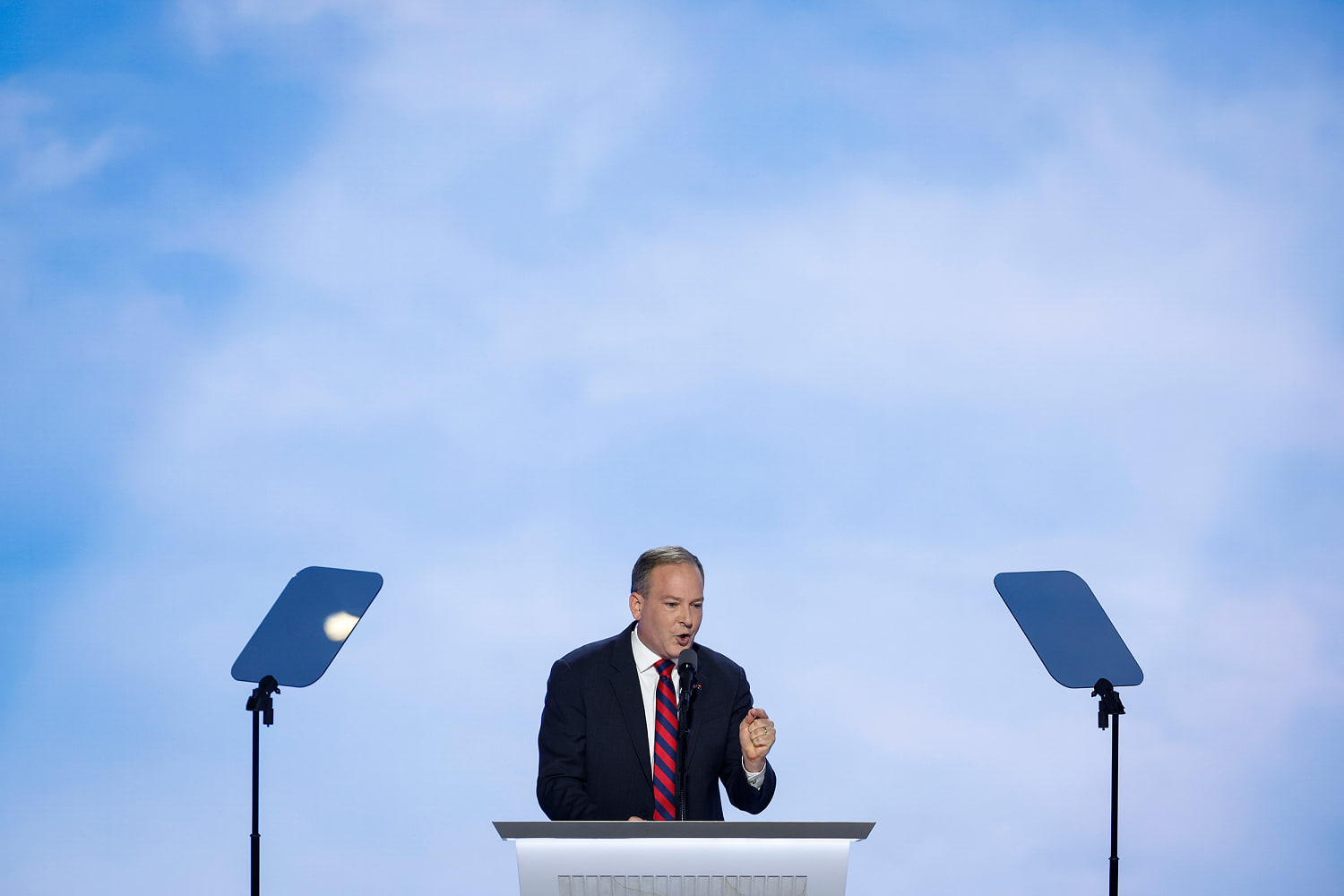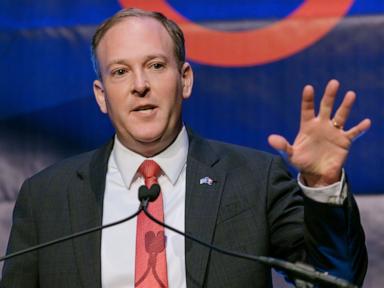Trump expected to roll back environmental protections, boost oil and gas

Former President Trump’s electoral victory will likely mean a significant shift in U.S. energy and environmental policy.
His return to the White House next year is expected to lead to a rollback of a number of federal environmental protections and an increase in U.S fossil fuel production and use in the long term.
The former president's positions on energy and climate starkly contrast with his successor's. He has frequently denied or downplayed the issue of climate change, and in his first term oversaw the rollback of more than 100 environmental rules and the U.S.'s withdrawal from the global Paris climate agreement.
On the campaign trail, he has said he would once again pull the country out of the accord — which President Biden rejoined in 2021 — and rescind Biden administration regulations on cars, power plants and household appliances, as well as unspent money from the Inflation Reduction Act (IRA), Biden's signature climate law.
He has also pledged to boost domestic oil and gas production, which has reached historic highs under the Biden administration. During his first term, Trump sought to open up more opportunities for new drilling on federally owned lands, as well as offshore drilling.
Whether he’ll be able to dismantle the IRA remains unclear, as it has not yet been projected which party will capture the House.
But the second Trump administration is expected to pursue some of the other actions he's vowed to take through the executive branch, including pulling out of the Paris climate agreement and undoing multiple Biden administration environmental rules.
Stan Meiburg, who served as both a career official at the Environmental Protection Agency (EPA) and a political official under the Obama administration, said he fears that Trump’s victory will result in more pollution and worse climate outcomes.
“I'm very worried that you will end up with an EPA that is far less capable of doing basic things, getting Superfund sites cleaned up, responding to emergencies, whether they're hurricanes like Helene or explosions like the one in Texas which spewed out a big pile of flame out of a ruptured gas pipeline,” said Meiburg, who is now the executive director of the Sabin Family Center for Environment and Sustainability at Wake Forest University.
He also worried about what he described as signals that “they really don't care if people violate the law.”
When it comes to the domestic production of fossil fuels, presidential policy may not be a significant difference-maker in the short term, since drilling decisions are economic ones made by private companies.
“Production is pretty much independent from whoever sits in the White House. It's much more dependent on oil prices and decisions that were made long ago,” said Claudio Galimberti, chief economist and global director of market analysis at Rystad Energy.
In the long term, though, Galimberti said Tuesday that the election’s results could make a difference on that front.
“A Trump administration could end up with more oil produced in the United States because they would, for instance, free up land for drilling” on public lands, he said, adding that there could also be more fiscal incentives or lower fees for drilling.
But, he said, even in the long term, “the oil price will still be the major decider.” In the U.S., oil companies are privately owned and make decisions about whether to produce more oil based on how profitable they think it will be — which is largely based on the fluctuating price of oil.
Since the oil market is a global one, this price is influenced by factors including supply and demand from around the world. While Trump has also said he hopes to bring down the price of gasoline, which is made from oil, this too is often influenced by global market factors.
A Trump victory could also mean less federal enthusiasm — and dollars — for some low-carbon energy technologies.
The IRA has provided billions in subsidies for climate-friendly technologies.
The law's fate could depend on the makeup of the House. If Republicans capture the lower chamber, it’s not totally clear which tax credits, if any, they would want to eliminate, as some moderate members support the investments the measure brought about in their districts.
The office of Speaker Mike Johnson (R-La.) released a plan for the first 100 days of a potential second term saying that Republicans would “repeal wasteful Green New Deal tax credits and anti-energy regulations.”
Johnson has said he may want to preserve some of the IRA credits, however, and more than a dozen other House Republicans have asked him not to target them.
Trump, meanwhile, has railed against certain low-carbon energy sources, especially wind. His campaign website particularly calls for an end to “insane wind subsidies.”
The tax credits under the climate law are technology neutral, meaning they subsidize any energy source that can meet certain climate thresholds rather than particularly providing dollars for wind or solar, so it’s not clear what an effort to repeal policies benefiting wind energy could ultimately look like.
Topics
-
Adnoc Gas Expects Earnings Boost From Rising Gas Demand
Business - The Wall Street Journal - November 11 -

Trump taps former Rep. Lee Zeldin to lead the Environmental Protection Agency
Top stories - NBC News - November 11 -

Lee Zeldin tapped to lead Environmental Protection Agency under Trump
Top stories - ABC News - November 12 -

Trump energy allies anticipate boom times for oil, gas, mining
Politics - The Hill - November 12 -
Trump picks oil and gas executive Chris Wright for energy secretary
Top stories - CBS News - 4 days ago -

Trump Set to Drastically Roll Back Climate Change Initiatives
Business - Inc. - November 7 -

Trump picks oil and gas industry CEO Chris Wright as next energy secretary
World - The Guardian - 6 days ago -

Legal challenge to Rosebank oil field begins
Top stories - BBC News - November 12 -

How oil and gas companies disguise their methane emissions
Business - Financial Times - November 12
More from The Hill
-

Musk, Ramaswamy ‘DOGE’ confidence in Supreme Court may be tested
Politics - The Hill - 2 hours ago -

Texas tees up likely legal battle with biblical public school lessons
Politics - The Hill - 2 hours ago -

What RFK Jr. could mean for LGBTQ health care
Politics - The Hill - 2 hours ago -

Bezos, Musk rivalry heats up ahead of Trump’s second term
Politics - The Hill - 2 hours ago -

Top Florida health official advises against fluoride in drinking water
Politics - The Hill - 9 hours ago
